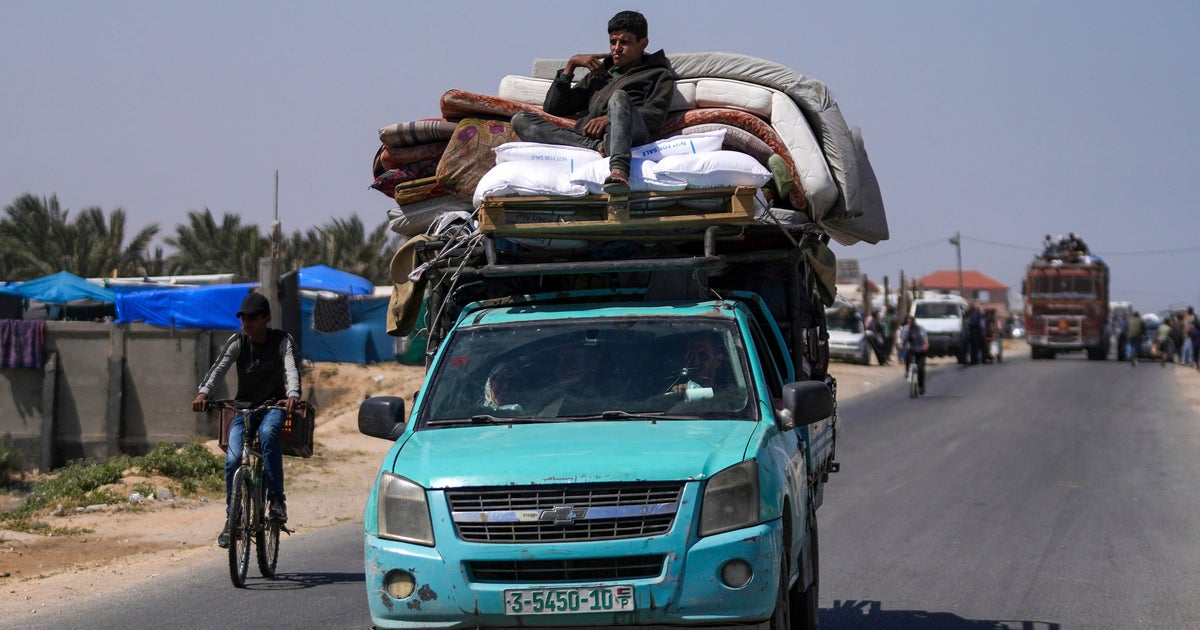Train cars to serve as hospitals as COVID-19 cases surge in Indian capital
New Delhi — Indian railway workers were busy pulling aside 200 train carriages at Delhi's Anand Vihar station on Tuesday. Over the next few days, 300 more carriages will be parked at platforms at other stations in the Indian capital. They're all being converted into makeshift isolation wards as Delhi struggles to cope with a still-surging coronavirus epidemic.
The train cars will add about 8,000 beds to Delhi's overwhelmed health care infrastructure. Amid reports that hospitals have been forced to turn patients away, the city's government also plans to convert dozens of hotels and banquet halls into makeshift hospitals. They also intend to construct a new 10,000-bed hospital on the outskirts of the city, covering a space the size of 22 football fields.
But even with these extraordinary measures — four and a half months after COVID-19 first came to India — the capital may be at pains to cope with its surging outbreak.
The Delhi region, home to an astonishing 30 million people, has seen a sharp rise in COVID-19 infections in recent weeks. It currently has almost 45,000 known cases and 2,000 deaths blamed on the disease. More than 1,800 new cases are tallied every day, and that number is expected to rise sharply as the government plans to triple the number of tests carried out every day by the end of this week.
The government's own estimate is that the number of coronavirus cases in the capital alone will rise to 550,000 by the end of July.
As the city braces for that surge, government data show that, as of Wednesday, there are 10,819 hospital beds available for coronavirus patients, and almost half remain vacant. The figures also show that more than 200 ventilators are available for use.
But despite the data, several news reports have shown overwhelmed hospitals turning new patients away. Seven hospitals in the Delhi capital region are facing investigation after allegedly denying a heavily pregnant woman with COVID-19 symptoms admission. She died in an ambulance earlier this month as she was shuttled between the hospitals for 13 hours.
"There were some initial issues with our hospital beds app and the hospitals," Aswathi Muralidharan, a spokesperson for the Delhi government, told CBS News. "All those issues have been sorted out now and everything is running smoothly."
Delhi's Chief Minister, Arvind Kejriwal, suggested early in the epidemic that residents would simply have to learn to "live with the virus," so businesses could reopen to salvage the economy. Last week he acknowledged the capital could need 150,000 hospital beds by the end of July, when the virus is expected to peak.
"I think the requirement of hospital beds in Delhi by July end will be much lesser than 150,000, but ramping up the health infrastructure is a step in the right direction," Dr. Prabhakaran Dorairaj, a cardiologist and the director of the Center for Control of Chronic Conditions at the government-run Public Health Foundation of India, told CBS News.
Delhi's government insists they've planned to have enough doctors and other medical staff in place to care for the patients who occupy the thousands of extra beds in hotels, banquet halls, and train carriages.
"We are assessing the medical staff requirements right now," Muralidharan told CBS News. "We would restructure and rearrange all our resources accordingly."
But Dr. Prabhakaran said "arranging the medical staff for these thousands of extra beds may not be so easy." He told CBS News that "innovative thinking, such as task shifting and task delegation," would be needed to help overcome shortages.
Last week, India's Supreme Court chastised the Delhi government's COVID-19 response. It said there was insufficient testing and described the overall situation in the capital as "horrendous, horrific and pathetic," with patients being treated, "worse than animals."
Delhi has been testing only 5,000 to 7,000 people per day for the virus, but as state and federal officials scramble to address Delhi's alarming surge in cases, Indian Home Minister Amit Shah has now promised "testing for all."
The total number of coronavirus cases in India has doubled to nearly 355,000 since the beginning of this month, when the national lockdown was largely lifted, allowing most businesses to reopen and travel to resume.
India has registered an average of more than 11,000 cases per day for the past week. Almost 12,000 people have died of COVID-19 in the country, which is now the fourth worst-affected country in the world, having overtaken the U.K., Spain, and Italy last week.






